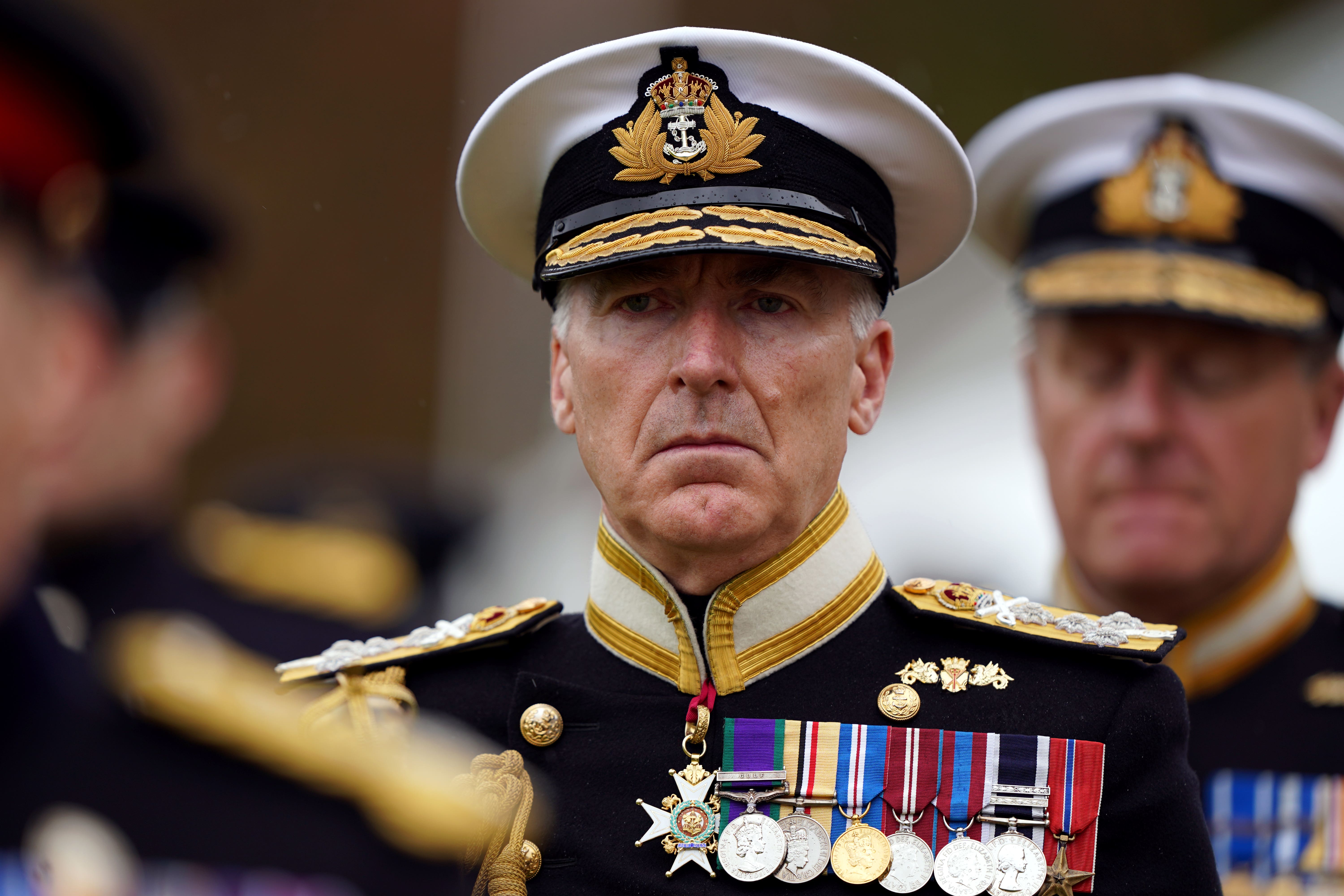Army addressing ‘historic underinvestment’ and ‘deficiencies’ says defence chief
The professional head of the armed forces, Admiral Sir Tony Radakin, said there are ‘near-term financial challenges’.

The British military is “not as strong as we could be” as it battles “historic underinvestment”, the head of the armed forces has warned.
Chief of the Defence Staff (CDS) Admiral Sir Tony Radakin said there are “deficiencies” in personnel, training, technology and stockpiles of munitions.
But he said the “near-term financial challenges” are being addressed and he wants an Army that can “push the boundaries of technology and lethality”.
We need the humility to recognise that we're not as strong as we could be. And then the determination and focus to put this right
The Government has ordered a root-and-branch defence review as it considers how to learn the lessons from the war in Ukraine and respond to a world in which Russia is working more closely with China, Iran and North Korea.
Sir Keir Starmer’s administration has committed to increase defence spending to 2.5% of gross domestic product, a measure of the size of the economy, but has not said when it will meet that ambition.
Addressing the Royal United Services Institute’s land warfare conference, Admiral Sir Tony said: “There are near-term financial challenges to work through.
“We’re addressing historic underinvestment and beneath the headline capabilities there are deficiencies in people equipment, stockpiles, training and technology.
“We need the humility to recognise that we’re not as strong as we could be. And then the determination and focus to put this right.”
The CDS said he wants to learn from Ukraine’s response to Vladimir Putin, with its armed forces able to take on Russia’s Black Sea fleet without a substantial navy of its own.
“I want a British Army that can follow suit to become an Army that can hold Russia at risk if SACEUR (Nato’s supreme allied commander in Europe) sees that necessity.
“An Army equipped with hypersonic missiles and battalions of one-way attack drones, an Army that serves as a disruptor in Nato, challenging the alliance to push the boundaries of technology and lethality.”
While Putin may not directly attack a Nato member in such an overt manner as to trigger Article V, we have seen that he's able to threaten us in other ways, in cyber and space and underwater, where our energy infrastructure and digital networks are most vulnerable
Admiral Sir Tony said the war in Ukraine has been “dire” for Russia, with the loss of 550,000 men.
He said it will take Mr Putin five years to restore the Russian army to its position before the invasion and another five to “rectify the weaknesses the war has revealed”.
But Russia still poses a threat, even if it is unlikely to attack a Nato member, something which would trigger the alliance’s mutual defence agreement.
“While Putin may not directly attack a Nato member in such an overt manner as to trigger Article V, we have seen that he’s able to threaten us in other ways, in cyber and space and underwater, where our energy infrastructure and digital networks are most vulnerable,” he said.
“Our role as military leaders is to reassure the nation and stiffen its resolve, and our advice to ministers needs to be grounded in a thorough and honest assessment of the threats we face.”
Bookmark popover
Removed from bookmarks